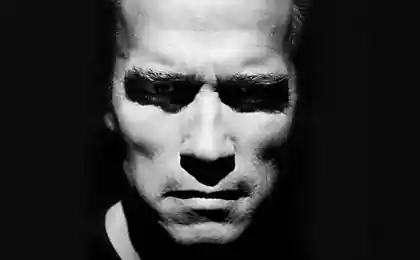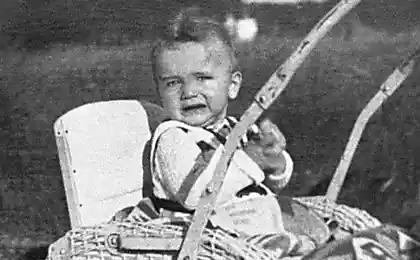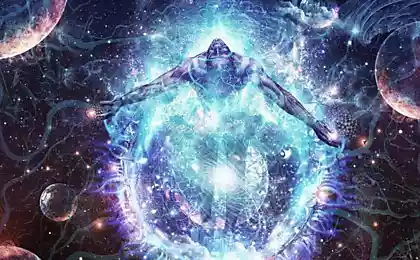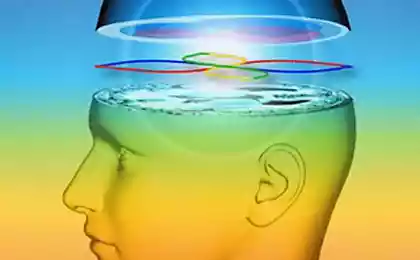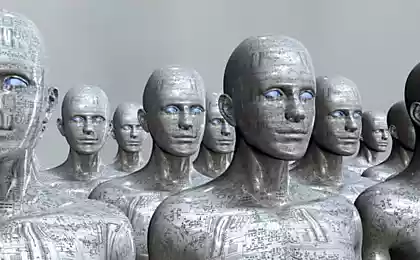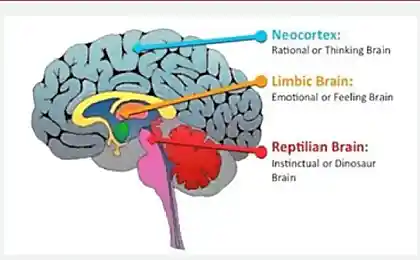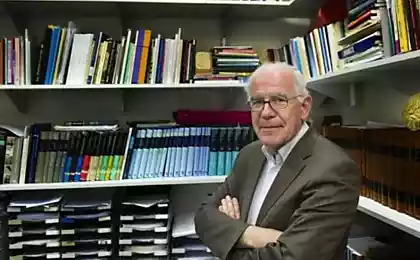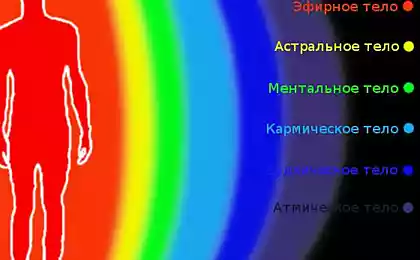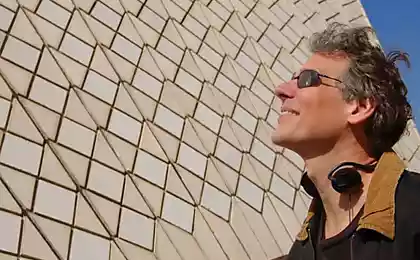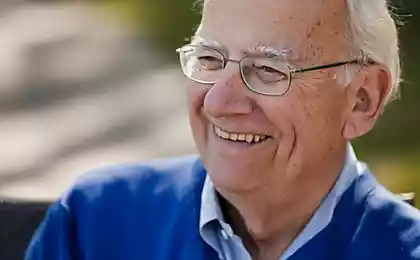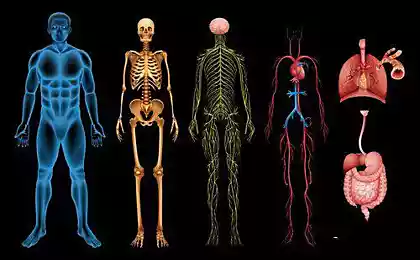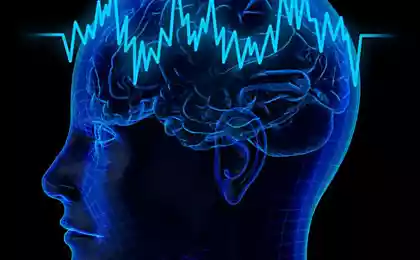261
Arnold Smejanovic: Consciousness has no place in the body, and the connection of the brain and thought is a secret.
Academician, head of the neurosurgical department of the RSPC of neurology and neurosurgery, neurosurgeon Arnold Fedorovich Smejanovich for 47 years of practice performed brain operations in almost 9000 patients.
People registered as potential disabled become able-bodied. For more than 5 years, he has not had an operating death rate. 250 of the most complex interventions every year, which Dr. Smejanovic performs personally. Sensitive to someone else's pain, ready around the clock to save others.
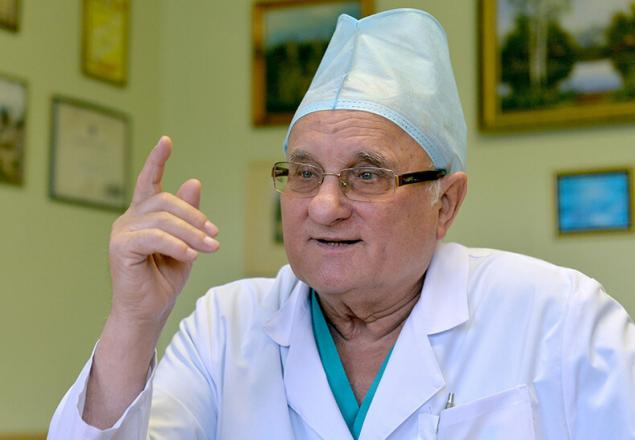
Arnold Fedorovich, almost every day you look into the brain and say that for a scientist he is 99.9% a mystery.
- Yes, I see in front of me a substance whose cells are filled with so much knowledge that like Newton I want to take off my hat to every researcher. It's not clear how it "works." For any signal from a nerve, ear or eye, a “picture” is created in it. But in the end, how does a person understand that this is a monkey, this is a lamp, and this is himself? The brain is more powerful than any supercomputer.
The clock speed of the processor is measured in gigahertz or terahertz; a person has only kilohertz. The signal goes from neuron to neuron not at the speed of light, but at 1,400 m per second. However, the brain spins much faster.
The most amazing thing is that consciousness has no place in the body, and the connection between the brain and thought is a secret. Perhaps the Creator possesses it.
Academician of the Russian Academy of Sciences and RAMS Natalia Bekhtereva admitted that when she and her colleagues tried to understand the deep structures of the brain (for the first time in the USSR, a scientist used the method of long-term implantation of electrodes), they immediately fell ill. They felt so bad that there was no strength for any research. But it was necessary to stop the experiments - immediately returned cheerfulness and health. The winner of two State Prizes of the USSR, the surgeon Voino-Yasenetsky, aka Archbishop Luke, compared the brain to a telephone station: the role is reduced to issuing a message. He adds nothing to what he gets.
Nobel laureate in physiology or medicine John Eccles (discovered ion mechanisms of excitation and inhibition in peripheral and central nerve cells) believed that the brain “does not produce” thoughts, but only perceives them from the outside. Natalia Bekhtereva was not afraid of crushing, derogatory criticism from fellow materialists and said that the human brain is able to create only the simplest thoughts.
Where theories, hypotheses, discoveries are born is unknown to physiologists. I also think that the brain is a creature in a being, a secret behind seven seals.
- To study Lenin's brain, a special laboratory was created, which soon expanded into an institute. Were you at the pulpit of Sergei Mardashov, where the brain of the leader of the world proletariat was kept?
- No, I didn't. But judging by the description of the operation made by the People’s Commissar of Health Nikolai Semashko after the shots of Fanny Kaplan, and the autopsy act (a secret archival document accessed by Monika Spivak, who published the book “Posthumous Diagnostics of Genius”), Lenin had problems. Arteriosclerosis: the vessels were knocked with tweezers, as on bone, so they were soaked in lime.
The entire left hemisphere in the cysts, softened areas of the brain, clogged vessels almost did not deliver blood - the disease seriously affected the organ that performed the most strenuous work. The contents of the skull were small - 1,340 g (for comparison: Byron's brain weighed 1,800 g, Turgenev - 2,012 g, and the largest belonged to ... an idiot). But the weight of matter and the breadth of mind, the genius is weakly connected.
Anatole France had the smallest brain, Louis Pasteur, the founder of microbiology and immunology, had only one hemisphere. They lived long and worked as God gave them.
The patient is prepared for surgery by assistants: intubated, opened the skull. You know everything about the patient, this is an unshakable rule for you. But let’s assume for a second that there is a man unconscious on the table, he was brought from the street with a severe traumatic brain injury. When you see his brain, you can say, is he smart or stupid?
- That's out of the question. Some have bigger brains, some have less. The appearance of the brain does not affect intelligence. Once upon a time, if I am not mistaken, about 40 years ago, I helped my teacher, Professor Ephrem Zlotnik, operate on a student of the conservatory. She had a big tumor in her hemisphere.
When it was removed, it turned out that the hemisphere was almost gone, the tumor destroyed. The girl recovered, graduated from the conservatory with honors, went to the United States, a millionaire fell in love with her, whom she married. She's still playing wonderfully today, and I know that because I get greetings and congratulations from her.
We also remove tumors on the frontal lobe of the brain, which is largely responsible for intelligence. When the neoplasm is firmly "dilted" with gray matter, it is necessary to remove part of the healthy.
The next day, you talk to the patient and you don’t notice that it’s hard for him to collect his thoughts. He jokes, remembers everything in his life.
- Is it possible that the brain is given to us with a large supply to use for the rest of our lives?
- The fact is that for many it is much more likely to “rust” than wear out. Forty percent just rests. People live like a fabulous Emele on a furnace, expect that everything will appear on its own, do not train memory, do not develop intelligence. And then they wonder if they can't remember the elementary.
The brain needs training, knowledge, reading, contemplation of beauty, restoration in its consciousness of a higher understanding of the meaning of life.
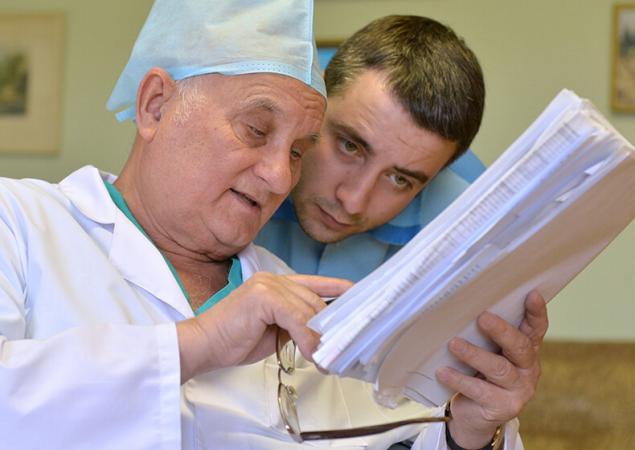
- Before starting brain research in the laboratory, academician Natalia Bekhtereva took the blessing of Metropolitan John of St. Petersburg and Ladoga (Snychev). She did not deny that she was calling for God’s help. Do you believe in him?
- When I see how beautifully arranged the heart and brain, which have no analogues in nature, I have no doubt that without the Divine hand was not done here. The great Russian surgeon Nikolai Pirogov wrote that “the brain of an individual is the organ of thought of world thought.” It is necessary to recognize the existence, in addition to cerebral thought, of another, higher, universal.”
It is easy to understand, unless you try to explain everything. For me personally, God is an ideal that man should embody in his daily life.
- Maybe a neurosurgeon asks questions about neurophysiology and is incorrect - this is the science of white spots. And yet, I want to know why the bundle of nerve fibers that transmit signals from the right to the left hemisphere is wider in women than in men.
- Unfortunately, it is not yet clear what the "beam" feature affects. In the Proverbs of the Russian people, V. Dahl, every line about women breathes deceit: “The hair is long, but the mind is short”, “Baba is delusional, but the devil believes her.” However, through various parts of the female brain, 15% more blood flows per unit of time. Perhaps this explains the lower strength of the male brain as a biological organism, and hence the greater frequency of strokes.
Sex differences do not affect gray matter. However, psychologists have shown that women are easier to cope with tasks that require intuition.
Women's gullibility sometimes means more than men's confidence. The coordination of subtle movements in the weaker sex is more perfect, as well as the available range of odors, high-frequency sounds, women better differentiate taste sensations.
I don't think a woman's brain needs legal protection. Nature has made it so that all human activities are equally accessible to both sexes, just that they do not always reach the peaks of success in the same ways.
- Where do you think the place of the soul is in the brain, spinal cord, heart?
- I don't think this substance needs a place. If there is, there is a mistress in the whole body.
- What do you think about when you operate? Sometimes the intervention lasts 7 hours.
- Just how to help the patient. Don't think of it as high-minded words, but it's like someone's cutting it off. They are not, nor is the swallowing reflex. I do not want to drink, eat, or get up and stretch my shoulders. Sitting in a chair, looking through a microscope at someone else’s brain (the hoop on my head has a small navigation system), it is under the scalpel in my hand. If it flinches, the patient can be left with trauma for life.
It is not easy to spend half a day under a microscope. But there is a result: people registered as potential disabled become able-bodied, more than 5 years there is no operational mortality.
- Life filters the environment around you. Who are more friends or enemies today?
- I think they're both equal. The second is envious. People tend to look with angry eyes at those who want speed and novelty. The new is always surrounded by disbelief, and standard thinking provides evidence of impossibility. And talent neglects the error detector.
The protesting nature of detractors should be seen as a signal. A sensitive soul must catch it in order to react correctly. Intrigue, slander, envy only shade the greatness of the present case. I advise everyone not to be distracted by squabbles and empty conversations, but to live what brings joy. For me personally, it's a job.
- How do you feel when you cannot save a patient?
- The idea is always the same: even though you are an academic, you have achieved nothing. You sew up the wound with a bitter feeling: the tumor could not be removed, it has already managed to destroy everything. Take your eyes aside on the roundabout. You can't lie. You know death is coming. You can't get used to it.
- Tell the patient that he has a malignant tumor?
- Very rarely. And only a courageous, calm person, so that he could finish some important things. And then he says that he does not want to operate, they say, he will resolve himself. “You have a tumor that is growing rapidly, and after a while you will be paralyzed,” I firmly say. And the person agrees to remove it. But what kind of tumor - I do not comment.
The brain has its own block of self-preservation and protection, like a fuse. The brain protects itself so that the flurry of negative emotions does not capture the whole.
Alexander the Great, Napoleon Bonaparte, Alexander Suvorov remembered all their soldiers – up to 30 thousand people. Socrates knew each of the 20,000 inhabitants of Athens. Charlie Chaplin could not even name the secretary he worked with for 7 years. How to strengthen our memory, what to prefer in food?
- When you notice a problem, the best way to remember is to write down reminders on paper and fasten them at eye level. Inventing puzzles, talking to yourself, not shy about it. Quietly say, "I leave the car at the end of the parking lot under a high poplar." Mentally give yourself orders: "You need to call so-and-so."
If you want to immediately remember the name of the person, then make an association with some way. For example: Masha waves her hands, Katerina rides a boat, Vasya hangs on the bar.
Read more. There are also atherosclerotic recipes that have long been used in the people: aron bark, clover flowers, beet juice mixed with carrots, horseradish, cherry, onions. In the food should be: bread with bran (vitamins of group B - "first violin" in the process of memorization), cheese, peas, buckwheat porridge, nuts, seafood, vegetables, fruits, honey. It is noted that everything useful for the brain likes the heart.
Bernard Laun: The words that heal
Andrey Maksimov: When parents become enemies to their children
- How do you feel about alcohol?
- A glass of good cognac will not harm the body. The philosopher Vasily Rozanov once read: “Cursed vodka”. A hundred bastards came and fucked my brain.” Figures. If it were my will, I would turn these words into a poster and hang them in places where young people hang out.
- The happiest moments of your life?
- When I see and hear people happy. Between them there is always the closest and rare sympathy, it seems that they live soul in soul and mind alone. Among these, even stale thaws ... published
P.S. And remember, just by changing your consciousness – together we change the world!
Source: professionali.ru/Soobschestva/psi-faktorvzglyad/vydajuschijsja-rossijskij-nejrohirurg-u/
People registered as potential disabled become able-bodied. For more than 5 years, he has not had an operating death rate. 250 of the most complex interventions every year, which Dr. Smejanovic performs personally. Sensitive to someone else's pain, ready around the clock to save others.

Arnold Fedorovich, almost every day you look into the brain and say that for a scientist he is 99.9% a mystery.
- Yes, I see in front of me a substance whose cells are filled with so much knowledge that like Newton I want to take off my hat to every researcher. It's not clear how it "works." For any signal from a nerve, ear or eye, a “picture” is created in it. But in the end, how does a person understand that this is a monkey, this is a lamp, and this is himself? The brain is more powerful than any supercomputer.
The clock speed of the processor is measured in gigahertz or terahertz; a person has only kilohertz. The signal goes from neuron to neuron not at the speed of light, but at 1,400 m per second. However, the brain spins much faster.
The most amazing thing is that consciousness has no place in the body, and the connection between the brain and thought is a secret. Perhaps the Creator possesses it.
Academician of the Russian Academy of Sciences and RAMS Natalia Bekhtereva admitted that when she and her colleagues tried to understand the deep structures of the brain (for the first time in the USSR, a scientist used the method of long-term implantation of electrodes), they immediately fell ill. They felt so bad that there was no strength for any research. But it was necessary to stop the experiments - immediately returned cheerfulness and health. The winner of two State Prizes of the USSR, the surgeon Voino-Yasenetsky, aka Archbishop Luke, compared the brain to a telephone station: the role is reduced to issuing a message. He adds nothing to what he gets.
Nobel laureate in physiology or medicine John Eccles (discovered ion mechanisms of excitation and inhibition in peripheral and central nerve cells) believed that the brain “does not produce” thoughts, but only perceives them from the outside. Natalia Bekhtereva was not afraid of crushing, derogatory criticism from fellow materialists and said that the human brain is able to create only the simplest thoughts.
Where theories, hypotheses, discoveries are born is unknown to physiologists. I also think that the brain is a creature in a being, a secret behind seven seals.
- To study Lenin's brain, a special laboratory was created, which soon expanded into an institute. Were you at the pulpit of Sergei Mardashov, where the brain of the leader of the world proletariat was kept?
- No, I didn't. But judging by the description of the operation made by the People’s Commissar of Health Nikolai Semashko after the shots of Fanny Kaplan, and the autopsy act (a secret archival document accessed by Monika Spivak, who published the book “Posthumous Diagnostics of Genius”), Lenin had problems. Arteriosclerosis: the vessels were knocked with tweezers, as on bone, so they were soaked in lime.
The entire left hemisphere in the cysts, softened areas of the brain, clogged vessels almost did not deliver blood - the disease seriously affected the organ that performed the most strenuous work. The contents of the skull were small - 1,340 g (for comparison: Byron's brain weighed 1,800 g, Turgenev - 2,012 g, and the largest belonged to ... an idiot). But the weight of matter and the breadth of mind, the genius is weakly connected.
Anatole France had the smallest brain, Louis Pasteur, the founder of microbiology and immunology, had only one hemisphere. They lived long and worked as God gave them.
The patient is prepared for surgery by assistants: intubated, opened the skull. You know everything about the patient, this is an unshakable rule for you. But let’s assume for a second that there is a man unconscious on the table, he was brought from the street with a severe traumatic brain injury. When you see his brain, you can say, is he smart or stupid?
- That's out of the question. Some have bigger brains, some have less. The appearance of the brain does not affect intelligence. Once upon a time, if I am not mistaken, about 40 years ago, I helped my teacher, Professor Ephrem Zlotnik, operate on a student of the conservatory. She had a big tumor in her hemisphere.
When it was removed, it turned out that the hemisphere was almost gone, the tumor destroyed. The girl recovered, graduated from the conservatory with honors, went to the United States, a millionaire fell in love with her, whom she married. She's still playing wonderfully today, and I know that because I get greetings and congratulations from her.
We also remove tumors on the frontal lobe of the brain, which is largely responsible for intelligence. When the neoplasm is firmly "dilted" with gray matter, it is necessary to remove part of the healthy.
The next day, you talk to the patient and you don’t notice that it’s hard for him to collect his thoughts. He jokes, remembers everything in his life.
- Is it possible that the brain is given to us with a large supply to use for the rest of our lives?
- The fact is that for many it is much more likely to “rust” than wear out. Forty percent just rests. People live like a fabulous Emele on a furnace, expect that everything will appear on its own, do not train memory, do not develop intelligence. And then they wonder if they can't remember the elementary.
The brain needs training, knowledge, reading, contemplation of beauty, restoration in its consciousness of a higher understanding of the meaning of life.

- Before starting brain research in the laboratory, academician Natalia Bekhtereva took the blessing of Metropolitan John of St. Petersburg and Ladoga (Snychev). She did not deny that she was calling for God’s help. Do you believe in him?
- When I see how beautifully arranged the heart and brain, which have no analogues in nature, I have no doubt that without the Divine hand was not done here. The great Russian surgeon Nikolai Pirogov wrote that “the brain of an individual is the organ of thought of world thought.” It is necessary to recognize the existence, in addition to cerebral thought, of another, higher, universal.”
It is easy to understand, unless you try to explain everything. For me personally, God is an ideal that man should embody in his daily life.
- Maybe a neurosurgeon asks questions about neurophysiology and is incorrect - this is the science of white spots. And yet, I want to know why the bundle of nerve fibers that transmit signals from the right to the left hemisphere is wider in women than in men.
- Unfortunately, it is not yet clear what the "beam" feature affects. In the Proverbs of the Russian people, V. Dahl, every line about women breathes deceit: “The hair is long, but the mind is short”, “Baba is delusional, but the devil believes her.” However, through various parts of the female brain, 15% more blood flows per unit of time. Perhaps this explains the lower strength of the male brain as a biological organism, and hence the greater frequency of strokes.
Sex differences do not affect gray matter. However, psychologists have shown that women are easier to cope with tasks that require intuition.
Women's gullibility sometimes means more than men's confidence. The coordination of subtle movements in the weaker sex is more perfect, as well as the available range of odors, high-frequency sounds, women better differentiate taste sensations.
I don't think a woman's brain needs legal protection. Nature has made it so that all human activities are equally accessible to both sexes, just that they do not always reach the peaks of success in the same ways.
- Where do you think the place of the soul is in the brain, spinal cord, heart?
- I don't think this substance needs a place. If there is, there is a mistress in the whole body.
- What do you think about when you operate? Sometimes the intervention lasts 7 hours.
- Just how to help the patient. Don't think of it as high-minded words, but it's like someone's cutting it off. They are not, nor is the swallowing reflex. I do not want to drink, eat, or get up and stretch my shoulders. Sitting in a chair, looking through a microscope at someone else’s brain (the hoop on my head has a small navigation system), it is under the scalpel in my hand. If it flinches, the patient can be left with trauma for life.
It is not easy to spend half a day under a microscope. But there is a result: people registered as potential disabled become able-bodied, more than 5 years there is no operational mortality.
- Life filters the environment around you. Who are more friends or enemies today?
- I think they're both equal. The second is envious. People tend to look with angry eyes at those who want speed and novelty. The new is always surrounded by disbelief, and standard thinking provides evidence of impossibility. And talent neglects the error detector.
The protesting nature of detractors should be seen as a signal. A sensitive soul must catch it in order to react correctly. Intrigue, slander, envy only shade the greatness of the present case. I advise everyone not to be distracted by squabbles and empty conversations, but to live what brings joy. For me personally, it's a job.
- How do you feel when you cannot save a patient?
- The idea is always the same: even though you are an academic, you have achieved nothing. You sew up the wound with a bitter feeling: the tumor could not be removed, it has already managed to destroy everything. Take your eyes aside on the roundabout. You can't lie. You know death is coming. You can't get used to it.
- Tell the patient that he has a malignant tumor?
- Very rarely. And only a courageous, calm person, so that he could finish some important things. And then he says that he does not want to operate, they say, he will resolve himself. “You have a tumor that is growing rapidly, and after a while you will be paralyzed,” I firmly say. And the person agrees to remove it. But what kind of tumor - I do not comment.
The brain has its own block of self-preservation and protection, like a fuse. The brain protects itself so that the flurry of negative emotions does not capture the whole.
Alexander the Great, Napoleon Bonaparte, Alexander Suvorov remembered all their soldiers – up to 30 thousand people. Socrates knew each of the 20,000 inhabitants of Athens. Charlie Chaplin could not even name the secretary he worked with for 7 years. How to strengthen our memory, what to prefer in food?
- When you notice a problem, the best way to remember is to write down reminders on paper and fasten them at eye level. Inventing puzzles, talking to yourself, not shy about it. Quietly say, "I leave the car at the end of the parking lot under a high poplar." Mentally give yourself orders: "You need to call so-and-so."
If you want to immediately remember the name of the person, then make an association with some way. For example: Masha waves her hands, Katerina rides a boat, Vasya hangs on the bar.
Read more. There are also atherosclerotic recipes that have long been used in the people: aron bark, clover flowers, beet juice mixed with carrots, horseradish, cherry, onions. In the food should be: bread with bran (vitamins of group B - "first violin" in the process of memorization), cheese, peas, buckwheat porridge, nuts, seafood, vegetables, fruits, honey. It is noted that everything useful for the brain likes the heart.
Bernard Laun: The words that heal
Andrey Maksimov: When parents become enemies to their children
- How do you feel about alcohol?
- A glass of good cognac will not harm the body. The philosopher Vasily Rozanov once read: “Cursed vodka”. A hundred bastards came and fucked my brain.” Figures. If it were my will, I would turn these words into a poster and hang them in places where young people hang out.
- The happiest moments of your life?
- When I see and hear people happy. Between them there is always the closest and rare sympathy, it seems that they live soul in soul and mind alone. Among these, even stale thaws ... published
P.S. And remember, just by changing your consciousness – together we change the world!
Source: professionali.ru/Soobschestva/psi-faktorvzglyad/vydajuschijsja-rossijskij-nejrohirurg-u/
What is the point of tension in the muscles and how to treat them
Train a new generation of "Oriole" comes on to the rails of the country

